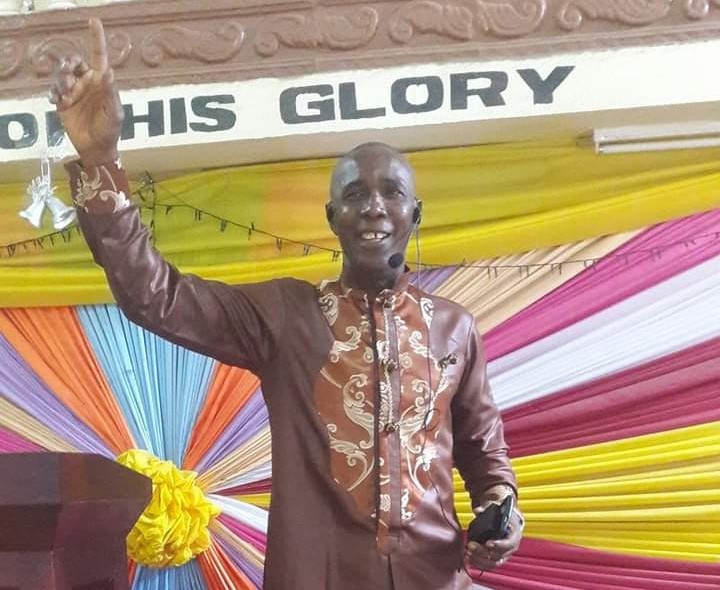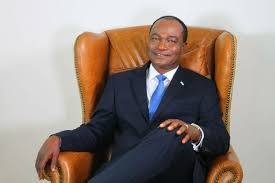The Cross Carpeting Phenomenon: A Threat to the Sierra Leone Multi-Party Democracy
The 1991 Sierra Leone Constitution, specifically Article 77 (1K) has largely eliminated the practice of cross carpeting among elected representatives in parliament. By stipulating that “a member of parliament shall vacate his seat in parliament if he ceases to be a member of the political party of which he was a member at time of his election to parliament, and he so informs the Speaker or the Speaker is so informed by the leader of that political partyâ€, the framers of the 1991 Constitution addressed the opportunistic motivations of elected politicians who seek to switch parties after elections and thus have strengthened our fragile political party system. (Photo: Kortor Kamara, author)
The phenomenon of switching political parties following policy disagreements or as a result of tribal and regional sentiments and or due to personality conflicts within political parties, though not a Sierra Leone preserve, is a practice that has long being perfected in modern Sierra Leone politics.
Since the memorable Brewah, Kai-Samba and F.S Anthony 1967 defections from the SLPP, followed by the defection from the opposition SLPP to the ruling APC by F. M Minah in 1974 and the wholesale cross- carpeting of the SLPP including its leaders, M.S Mustapha and Salia Jusu-Sheriff in the aftermath of the APC declaration of the 1978 one-party constitution; politicians have only been too eager to display their self centeredness and lack of political principles at the expense of their constituents.
The cross carpeting of J.B Dauda and Dr. Abass Bundu from the APC to the SLPP, in the 1990’s represents an example of the change in the other direction.
Cross carpeting by non-elected politicians:
However, cross carpeting by non-elected politicians, not addressed in the 1991 Constitution, continues to pose a serious threat to the stability of the multi-party system in Sierra Leone. The most recent spate of PMDC and SLPP politicians cross carpeting to the ruling APC thus represents a continuation of this self-interest centered political fraud and unprogressive practice, which currently poses the greatest threat to the teetering multi-party representative democracy in the country.
As identified in the TRC Report, Sierra Leone “politicians have always preferred individual short-term survival over sound ideology, doctrines of principle or good governance. Thus in 1978, the SLPP members abdicated their responsibilities to challenge bad governance, their major focus instead switching to means of reaping the loot of co-option†(TRC Report Vol. 3A Para 69).
For as a nation recovering from the effects of the civil war, characterized by the failure of good governance, our failure to reassess and evaluate the long- term consequences of a system where politicians purely for personal greed and self-aggrandizement are allowed to subvert our governance and democratic institutions can no longer be tolerated.
A critical mass of people, both internally together with the nation’s international partners need to be made aware that Sierra Leone politicians cannot be counted on to continue establishing and securing the country’s democratic environment, with the practice of bribes, positions and offers of state resources to lure cross-carpeting politicians. The self-interest and greed is so overpowering in the face of the abject poverty in the country, which has always served as the motivating inducing factor. For as long as cross-carpeting politicians continue to benefit from political favors, gifts and positions in government, it stands to reason that such a governance system will only be a façade that will engender resentment such as along lines preceding the period civil war.
Are the political elites capable of change?
The Sierra Leone political elites left to their own devices represent not only a corrupting influence on governance but collectively epitomize the single most potent threat to the nation’s fledgling representative democracy. Their penchant for changing political parties, known in local parlance as “cross-carpeting†is so pervasive and mostly devoid of any constituent or national policy driven agenda, that unless stakeholders of a truly democratic dispensation in the country seek to curtail this practice, Sierra Leone will be destined for another calamity.
The cross carpeting syndrome, a symptom of the malaise in our representative democratic system, evidenced by the bankruptcy of political beliefs, policies and ideals is again being manifested as politicians of opposition parties are angling to join the ruling APC government purely for self-aggrandizement and greed.
THE APC party record:
The APC party is wont to state that the idea of a one party state in Sierra Leone was initially advanced by the Albert Margai SLPP. This assertion is indeed true, however what is incontrovertible is that the APC party of Siaka Stevens promulgated and brutally implemented the 1978 one-party constitution. The Siaka Stevens regime’s institutionalization of the one-party concept succeeded in stifling and suppressing all non-violent avenues for opposition in the country subsequently leading to the debilitating and brutal civil war. A perusal of the TRC report and especially the submission of the APC party to the TRC underline the party’s continued obsession with wielding unbridled power and as such cannot be trusted to uphold the multi-party character of the current political environment.
The party’s justification as stated in its submission to the TRC by President Koroma states inter alia that †since the APC was returned to power after the SLPP-led military interregnum in 1968, the ever-present threat to remove the party from office by force of arms forced successive APC governments into a self defence and state defence posture. In the process, internal security and stability assumed a very prominent place on the government agenda, thus slowing down the full impact of our development strategiesâ€
The party’s preoccupation with maintaining itself in perpetual power and its failure to accept responsibility for the excesses of the Siaka Stevens era and its justification for the gross pervasion of the nation’s democratic processes and institutions, as articulated in the TRC report, should call for enhanced vigilance by opposition political parties, civil society institutions and the international community to forestall a repeat of the negative aspects of governance in the Siaka Stevens era, as epitomized by the one-party 1978 constitution.
While the whole world was being hoodwinked with the proposition that the civil war in Sierra Leone was as a result of diamonds, it was glaring to those who lived through both the Siaka Stevens and Momoh eras that the country was indeed ripe for a revolution and was heading for a violent conflagration. With due respect to the glamorized western notion that the civil war was about blood diamonds, it must be noted that the disenfranchisement and stifling of political association, the one-party Siaka Stevens administration enforced, was one of the major catalyst that fueled the conflict. So much has however since changed but still things remain the same and how soon our political elite forget the consequences of their actions and inactions that resulted in this catastrophe?
Restrictions on non-elected political party switching:
There are those who would argue that it is freedom of political choice, a basic tenet of a participatory democracy, which provides for these politicians to exercise their freedom to associate with any party of their choice in a democracy. This is indeed true; however freedoms are not limitless or without boundaries and our participatory democracy must be designed to function as a means of enhancing the capacities of governance institutions and not merely for the opportunistic machinations of the political elites.
The counter argument being postulated here is that reasonable and prudent restrictions, checks and balances designed if not to totally eliminate the practice but to eradicate the incentives and political rewards these turn coat politicians crave, must be instituted in the electoral laws. Â For while in developed democracies the right exists, the fragile and teetering nature of our democracy and our politicians ever so convenient straddling between membership in various political parties must be examined and cautioned and corrective measures instituted.
One such corrective measure entails promulgation of laws and or regulations empowering the Electoral Commission and or the Political Parties Registration Commission to ensure that in the event of such cross carpeting by non-elected politicians, such politicians should be precluded from availing themselves of any state appointments, political or pecuniary gains from their new parties until after the next elections. This way the gaming of the system that is currently unfolding in the political system will be forestalled. The temptation to defect in return for appointments in other parties will be minimized.
For just as Parliamentarians are precluded from changing political parties after their elections, there is no rational reason why this preclusion cannot be extended to other non-elected political functionaries.
Secondly, the preservation of a multi-party democracy is of a greater and paramount importance than an individual politician’s desire to associate with a ruling party. The Sierra Leone political establishment must be made to realize that political pluralism is a fundamental benchmark of a true democracy’s institutions and values and any efforts by ruling parties to dilute their cohesion risks undermining the fabric and integrity of the democratic space.
The author, Mr. Kortor Kamara is a United States based Sierra Leone socio-economic and political commentator, whose writings on contemporary Sierra Leone politics and development issues have been published by several publications both internationally and in his native Sierra Leone.Stay with Sierra Express Media, for your trusted place in news!
© 2010, https:. All rights reserved.






